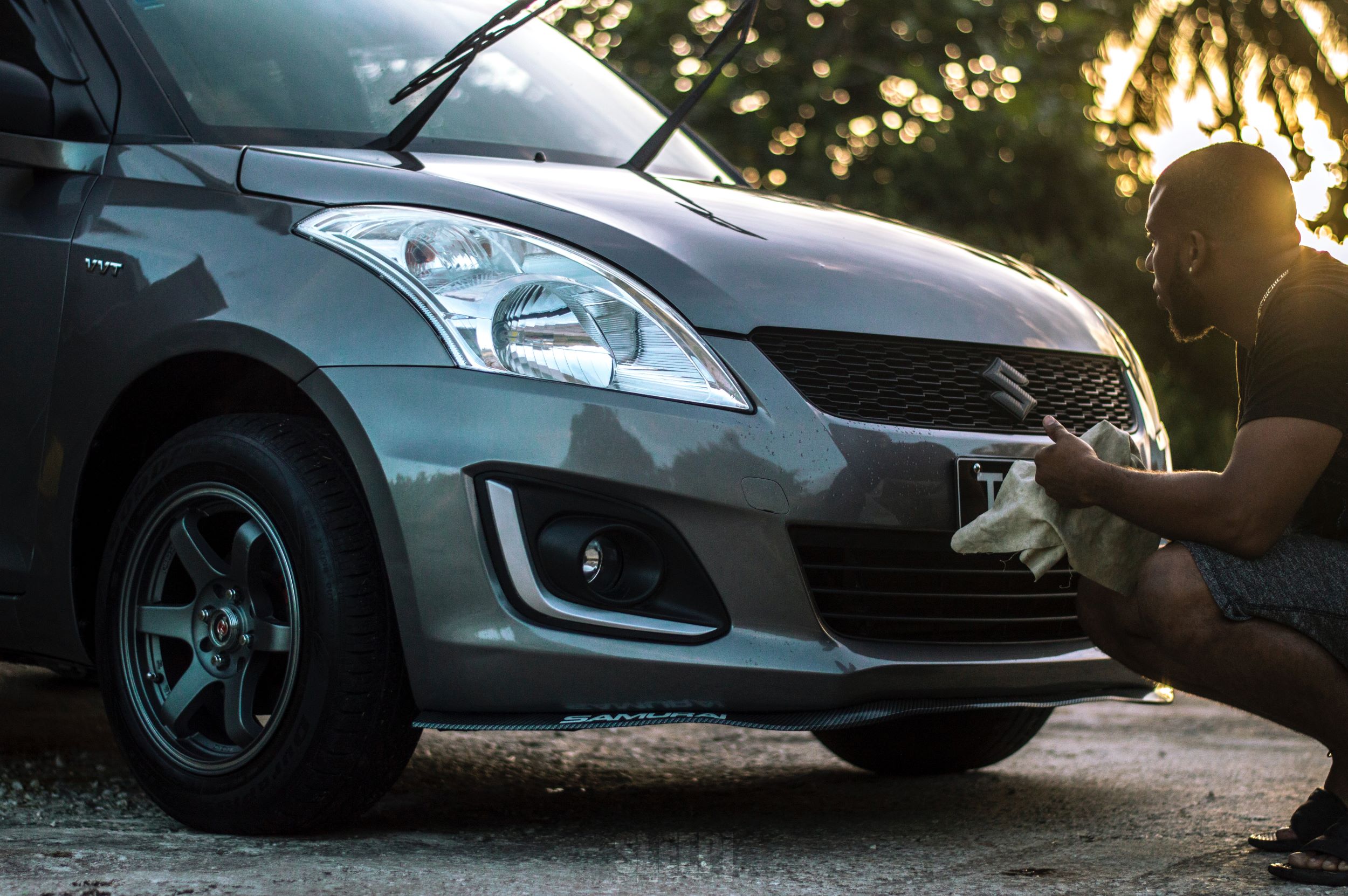We love birds. But co-existing with these intelligent creatures means dealing with the not-so-glamourous side: bird poop. In this blog post, we’ll explain why your car may be a target, and list the best ways to remove bird poop from your car’s paint and windshield.
Is Your Car a Target for Bird Droppings?
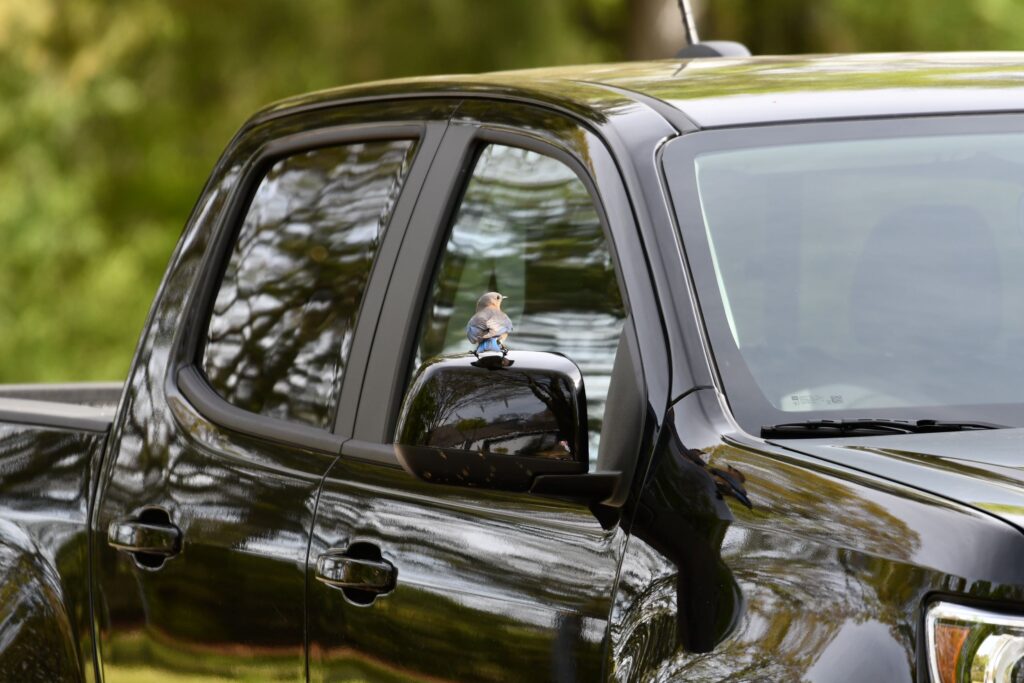
If you think your car is getting more than its fair share of bird droppings, you may be right. But before imagining that birds have some kind of vendetta against you, there’s actual science behind the real reasons.
While some theorize that the color of your car makes you more of a target, ornithological experts point to a simpler factor: where you park. For example, if you park under large trees, lamp posts, and other areas where birds congregate—or if you’re near a bird’s nest or roosting spot—you’re more likely to find those telltale white blobs on your windshield.
And have you ever wondered why birds choose to poop on your car right after you wash it? What seems like Murphy’s Law has a more scientific explanation. A clean car shows the bird their reflection, which they see as a threat, and poop out of stress or to mark their territory.
Why You Should Clean Bird Poop Off Your Car ASAP
If you find bird droppings on your car, especially if it’s on the paint, try to clean it off immediately. Bird poop is highly acidic, and can destroy your car’s paint in as little as 10 minutes in the right conditions. However, in most cases, if you remove it within 48 hours, your car should be fine.
How to Effectively Remove Bird Poop from Your Car
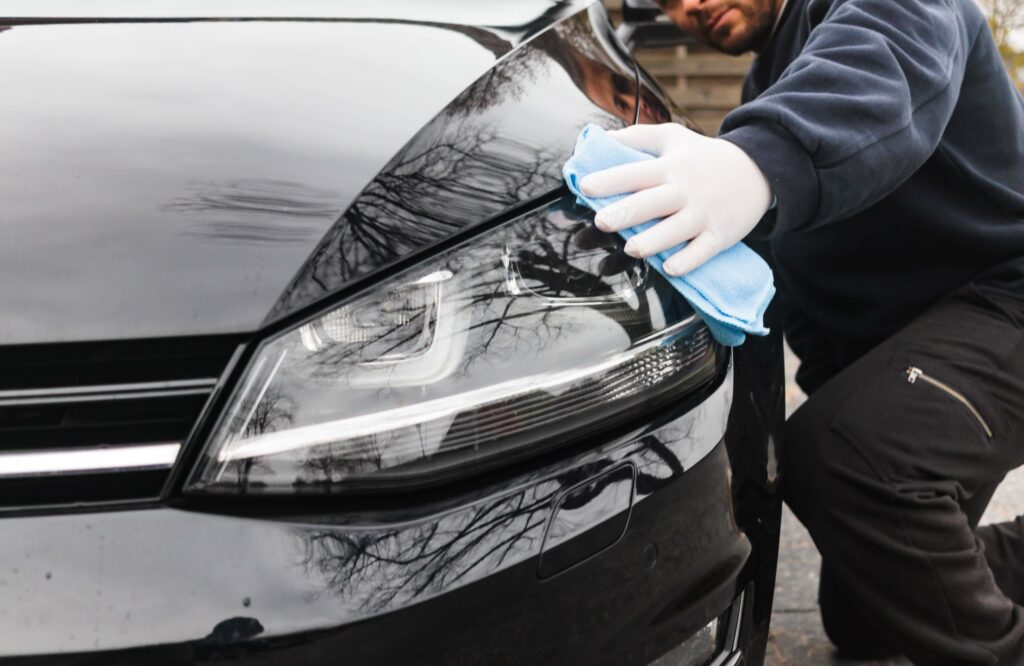
- Put on gloves (as protection against the harmful bacteria in bird feces).
- Use a microfiber cloth, or clean, soft cloth.
- Use cloth and some warm water or seltzer water (helps break down acidity) to gently wipe away the bird feces. (You can also use a mixture of 2 tablespoons baking soda, hot water, and a few drops of dish soap.) If the bird feces has dried, soak the cloth, and place it on the area for about 10-15 minutes before gently wiping it away.
- Repeat until the area is completely clean.
- Rinse the area with clean water and dry thoroughly.
How to Deter Birds From Pooping on Your Car
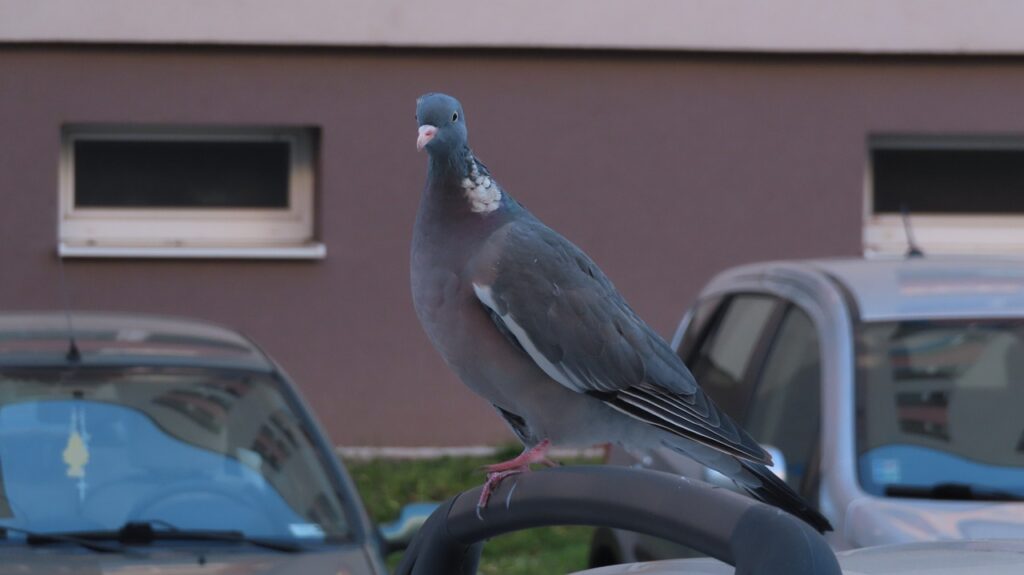
While there is no foolproof solution to bird droppings on your car, there are ways to minimize the damage. Park your car in the garage or under a covered car port, if you have access. You can also place a car cover or tie a tarp over your vehicle. Avoid parking under power lines, trees, large buildings, lamp posts, and other places where birds frequent. It’s also a good idea to move your car frequently—at least every two days—so birds don’t poop on it to “claim” it as their own.
You can also scare birds away by placing a fake owl or predator decoy nearby. Holographic (scare) tape works the same way, as do household materials like CDs, aluminum foil, and other items with reflective surfaces. Other effective bird deterrents are pinwheels, windchimes, and garden décor that moves with the wind.
All of the above are bird-safe deterrent methods. We do not recommend shooting at birds, or engaging in any other harmful activity to deter them. Wild birds are protected by the Migratory Bird Treaty Act of 1918, making it illegal to harm or kill them.
The Surprising Benefits of Bird Poop
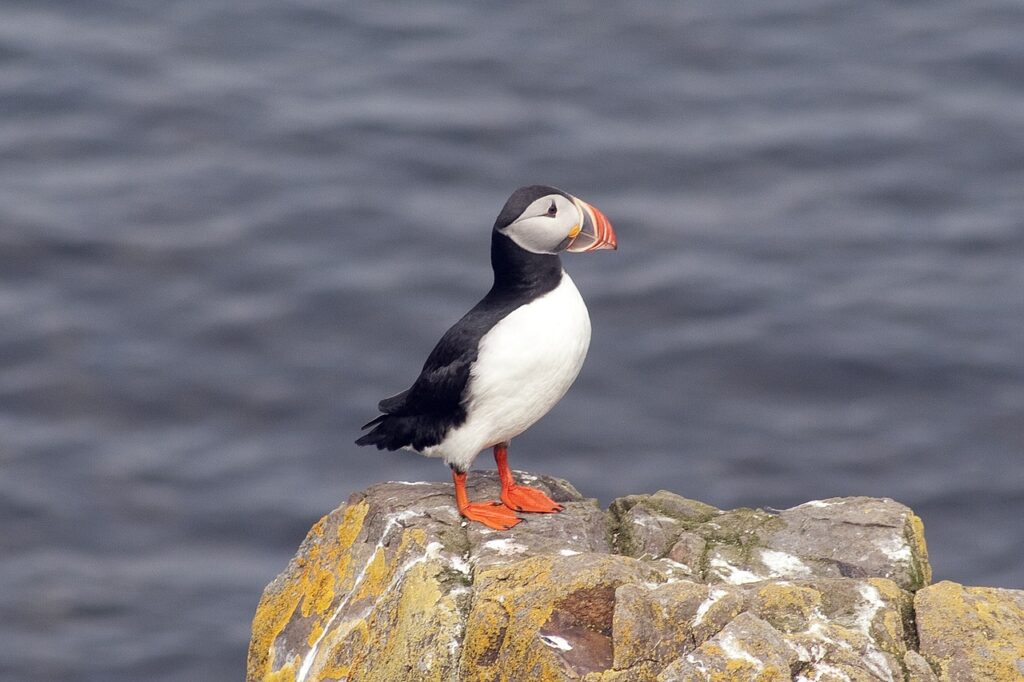
Bird poop—an unlikely hero in the fight against climate change? While that may seem silly, scientists don’t seem to think so. In fact, the study of bird feces to understand more about wild birds, our environment, and our climate is considered the “next frontier” in conservation.
Just take a look at the bird droppings that are responsible for the regrowth of a swath of Washington’s Olympic National Park. Demolition of a dam left hundreds of acres of exposed land. The National Park Service and the local Lower Elwha Klallam tribe have been working to restore the land since the 1980s, and they found an unlikely ally: birds. Over the years, warblers, sparrows, and American Robins flew overhead, depositing their feces, which contained seeds that would restore much of the barren land back to life.
And did you know that bird poop helps to keep the Artic cool? There is evidence that the ammonia found in seabird feces interacts with the water and sulfuric acid in the air, which contributes to the formation of low clouds that reflect sunlight and help keep the ocean cool.
Want More Wild Bird How-Tos?
From learning what to do when you find an orphaned baby bird to how to teach your kids about how to protect the environment, the Chirp blog is filled with tons of resources. We have information on everything from protecting and feeding wild birds to learning more about how they think and feel.
You can also head over to the Chirp YouTube channel for videos on everything from how to begin backyard birding to virtual bird walks and bird talks by avian experts.

